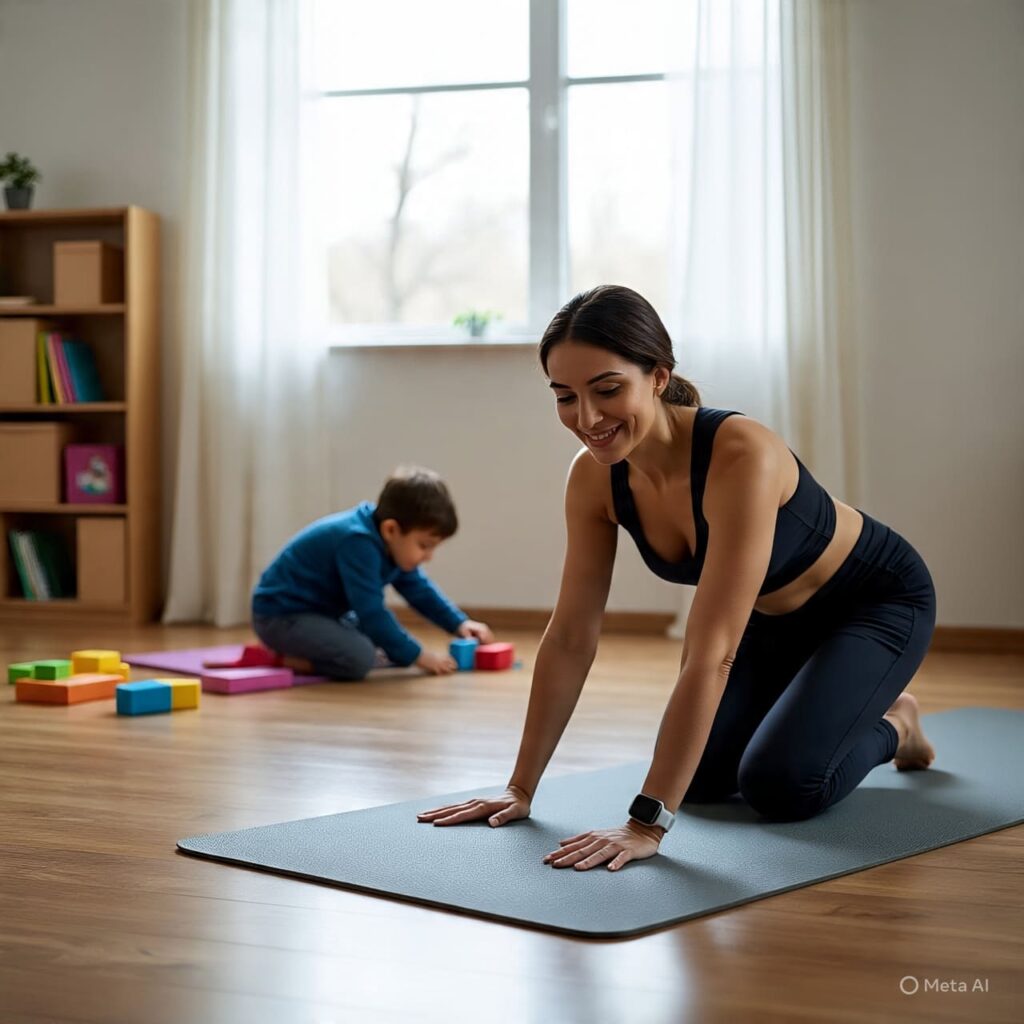
Table of Contents
Did you know that a study in PMC (2024) found that single parents showed significantly poorer mental health compared to partnered parents, with higher odds of depressive symptoms? The detailed findings are available in this PMC study.
If you’re navigating this transition, you’re not alone. The reality is that single parenting stress after divorce can feel like a constant uphill climb, balancing emotional healing, financial pressures, and the responsibility of raising children on your own.
The good news? Stress doesn’t have to control your journey. While the challenges of single parenting are very real, there are proven steps you can take to heal, rebuild your confidence, and create stability for both yourself and your child.
In this guide, we’ll walk through 5 proven healing steps that address both the emotional and practical sides of life after divorce. From acknowledging your feelings to creating a supportive routine, these strategies will help you shift from feeling overwhelmed to feeling empowered.
1. Acknowledge and Process Your Emotions

One of the first challenges of single parenting stress after divorce is the flood of emotions that come with such a major life transition. Feelings of anger, grief, guilt, or even shame can be overwhelming.
Many single parents feel pressure to “stay strong” for their children, but suppressing emotions often backfires, leading to burnout, irritability, and even long-term mental health challenges.
Beyond the sleepless nights, research shows that single parents are at higher risk of experiencing depression and anxiety. In fact, studies such as Single parenthood and depression: A thorough review highlight the significant mental health struggles that can accompany single parenting stress after divorce.
Why processing emotions matters: When you allow yourself to feel, you also allow yourself to heal. By facing grief head-on, you create space for acceptance and resilience.
This not only benefits you but also helps your children see that expressing emotions in healthy ways is normal and safe.
Practical tools for emotional healing:
- Journaling: Writing down your daily experiences and feelings provides an outlet for stress while helping you identify emotional triggers. Even 10 minutes before bed can bring clarity.
- Therapy: Professional counseling gives you structured guidance in navigating divorce-related emotions. Therapists can help reframe guilt and anger into acceptance and forward growth.
- Support groups: Whether in-person or online, connecting with other single parents provides a sense of community and validation. Hearing, “I’ve been there too,” can make the journey less isolating.
Global support networks available
Many countries have dedicated single-parent support organizations. For example, Gingerbread in the UK offers local and online groups for divorced parents, while Parents Without Partners in the US connects families through community events.
Online spaces like Facebook single-parent groups or platforms like Meetup also allow you to share struggles and strategies with others who understand your journey.
Taking these steps doesn’t mean the pain disappears overnight, but they create healthy pathways to process single parenting stress after divorce and move toward genuine healing.
2. Build a Strong Support System

When single parenting stress after divorce becomes too heavy, the natural instinct is to try to manage everything alone. But isolation makes the burden heavier. Building a strong support system is one of the most effective healing steps for single parents.
Leaning on family and friends: Trusted relatives and close friends can be lifelines, whether it’s babysitting, offering a listening ear, or simply helping with everyday tasks. Accepting this help isn’t weakness; it’s recognizing that parenting is always easier when it’s shared.
Professional support: In addition to personal networks, teachers, doctors, and childcare professionals can play important roles in your support system. Keeping open communication with these people ensures you’re not carrying the weight of parenting decisions alone.
Online single-parent communities: Technology has made connection easier than ever. Platforms like Reddit’s Single Parents forum or local Facebook groups offer spaces for divorced parents to ask questions, share coping strategies, and gain reassurance.
These communities often provide practical resources, from legal guidance to emotional support, without judgment. You can read more on the SPAOA site.
How to ask for help without guilt
Many single parents hesitate to ask for support, fearing it makes them appear incapable.
In reality, asking for help builds stronger bonds. Try framing requests as opportunities for loved ones to contribute. For example: “Would you mind watching the kids while I attend a therapy session? It would mean a lot to me.” Most people feel honoured to be trusted in this way.
Building a web of support doesn’t remove all single-parenting stress after divorce, but it makes the load far lighter and shows your children that community matters.
3. Create a Practical Routine for Stability
Stress thrives in chaos. One of the best ways to reduce single-parenting stress after divorce is by creating consistent routines that provide stability for both you and your children. Divorce can leave families feeling uprooted, and structure helps rebuild a sense of security.
Why routines matter
Predictability lowers anxiety. For children, knowing when meals, school, and bedtime happen creates reassurance during an otherwise uncertain period. For parents, routines help prioritize responsibilities and reduce decision fatigue.
Examples of practical routines:
- Time-blocking: means scheduling your day into specific blocks of time for work, school runs, meal prep, and family activities. This method helps balance daily tasks and prevents overwhelm by giving each activity its own focused time. Learn more about effective time-blocking strategies and how to organize your day efficiently here.
- Meal prepping: Planning weekly meals not only saves money but also reduces daily stress. Simple batch cooking can prevent last-minute takeout stress.
- Bedtime consistency: Keeping the same bedtime rituals, such as reading or meditation, improves sleep for kids and creates peaceful evenings for parents.
Quick wins to reduce overwhelm:
- Lay out school clothes the night before.
- Create a shared family calendar (digital or paper) for appointments and activities.
- Tackle one household task daily instead of letting chores pile up.
Even small daily rituals can make life feel manageable again. A structured approach allows you to reclaim control, reducing the impact of single-parenting stress after divorce.
4. Prioritize Self-Care Without Guilt

Many single parents sacrifice their own well-being in the name of putting their children first. But ignoring self-care increases stress, exhaustion, and resentment. A key healing step for single parenting stress after divorce is learning to prioritize yourself without guilt.
Stress management strategies: Exercise, meditation, and hobbies are proven ways to reset mental and emotional balance. A short walk, a 10-minute guided meditation, or listening to music can significantly lower stress levels. Meditation made simple.
Micro self-care rituals: If time is tight, focus on small acts of self-care that fit into your day:
- Enjoy a cup of tea in silence.
- Write down three things you’re grateful for.
- Do 5 minutes before bed.
These micro habits compound into long-term resilience.
Why self-care benefits your child too
Children thrive when their parents are emotionally stable. By modelling self-care, you teach them that looking after one’s health is not selfish but necessary. A rested, balanced parent creates a calmer home environment.
Reframing self-care as part of responsible parenting helps you embrace it without guilt, making it a cornerstone of reducing single-parenting stress after divorce.
5. Focus on Financial and Future Planning
Financial worries are often one of the heaviest contributors to single parenting stress after divorce. Suddenly managing one income, legal expenses, or child support can feel daunting. Taking control of finances not only eases stress but also sets the foundation for a secure future.
Budgeting tips for single parents
Start with a clear picture of your income and expenses. Use apps like Mint or YNAB to track spending and identify savings opportunities. Even small adjustments, like reducing subscriptions or meal planning, can free up resources for essentials.
Even small adjustments, like reducing subscriptions or meal planning, can free up resources for essentials. For extra income, consider side hustle ideas to boost your budget.
Setting achievable financial goals
Instead of aiming for perfection, focus on attainable steps such as building a small emergency fund, saving for school supplies, or reducing debt gradually. This creates momentum and lowers financial anxiety.
Future planning for stability
Beyond immediate needs, think long-term. Consider insurance coverage, retirement savings, and college funds for your children. Even modest contributions add up over time.
Teaching resilience to children
Kids are highly observant during transitions. Explaining financial changes honestly, without instilling fear, helps them adapt and understand the value of budgeting.
Phrases like, “We’re saving for something important, so we’ll skip eating out this week,” model responsibility.
By addressing finances head-on, you not only reduce the stress of single parenting after divorce but also empower yourself and your children with stability and confidence for the future.
Conclusion
Facing single parenting stress after divorce can feel like an uphill climb, but remember, you don’t have to walk this road alone, and you don’t have to have it all figured out today.
By acknowledging your emotions, building support, creating routines, practicing guilt-free self-care, and planning for the future, you’re laying the foundation for both healing and growth.
Every small step you take is proof of your resilience and your love for your children. Healing is not about being perfect, it’s about progress, patience, and giving yourself grace as you rebuild a new life.
Here’s your next step: Subscribe to The Life of a Working Mom and get our free guide, Stress-Free Parenting Routines for Single Moms. It’s packed with practical tips to help you manage daily challenges and create more peace in your home.
If this post resonated with you, comment below with the step you’re most ready to try, or share this with another parent who might need encouragement today. Together, we can make the journey of single parenting after divorce less stressful and more empowering.
FAQs
Q1: How do I cope with loneliness as a single parent after divorce?
Create regular social interactions, join support groups, and remind yourself loneliness is temporary.
Q2: What’s the best way to balance work and parenting as a single parent?
Use time-blocking, set boundaries, request flexible work options, and maintain a consistent routine.
Q3: How do I support my child emotionally during this transition?
Be honest and reassuring, keep routines stable, encourage expression, and consider child therapy if needed.

